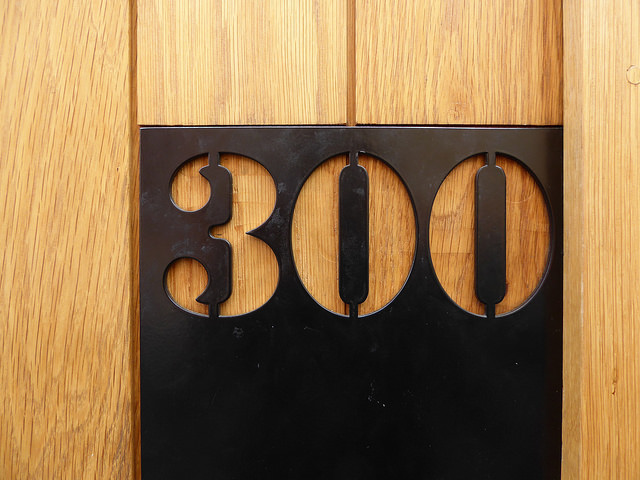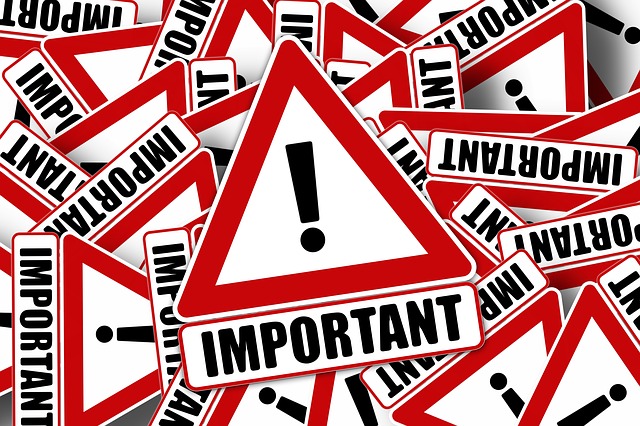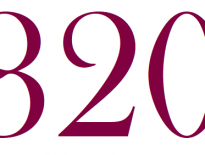
If you have taken or are planning to take the GRE, you’ll need to know what GRE score will give you your best chance of admission to grad school. Is a GRE 300 score good? Should you aim higher? Lower?
In this article, we discuss how good a 300 GRE score is by analyzing both percentiles and minimum GRE scores of popular programs. We also talk about how important it is to get a GRE score of 300 and what you can do to reach (or even exceed!) this score level.
Feature image: duncan c/Flickr
Is 300 a Good GRE Score?
The fact of the matter is, most grad programs don’t look at total GRE scores but rather your individual scores for Verbal and Quant. Therefore, how good a GRE 300 is depends on two key factors:
- What individual percentiles you scored in on Verbal and Quant
- What kinds of GRE scores your programs want
Let’s start with percentiles. Percentiles tell you what percentage of test takers scored lower than you on a particular section or the test as a whole. The higher your GRE percentile is, the more competitive your score is.
Each year, ETS calculates individual percentiles for Verbal and Quant (as well as for Analytical Writing, though this score is separate from your total score). As such, how your scores add up to 300 can vary: you could get 150 on Verbal and 150 on Quant, 155 on Verbal and 145 on Quant, etc.
Generally, you’ll want to get a higher score on the GRE section more closely related to your field. For example, if I were applying to sociology PhD programs, I’d benefit most by aiming for a higher Verbal score. We’ll cover this idea in more detail later.
Quick side note: we've created the world's leading online GRE prep program that adapts to you and your strengths and weaknesses. Not sure what to study? Confused by how to improve your score? We give you minute by minute guide.
You don't NEED a prep program to get a great GRE score. But we believe PrepScholar is the best GRE prep program available right now, especially if you find it hard to organize your study schedule and don't know what to study.
Click here to learn how you can improve your GRE score by 7 points, guaranteed.
Now, what are the current GRE percentiles exactly? The following table offers a 10-point range of GRE scores (that are most likely to add up to 300) and their corresponding percentiles:
| Score | Verbal Percentile | Quant Percentile |
| 155 | 69 | 59 |
| 154 | 65 | 55 |
| 153 | 61 | 51 |
| 152 | 56 | 47 |
| 151 | 52 | 43 |
| 150 | 48 | 38 |
| 149 | 43 | 35 |
| 148 | 39 | 30 |
| 147 | 35 | 27 |
| 146 | 31 | 24 |
| 145 | 27 | 20 |
Source: ETS GRE Interpretive Data Table 1A
In this chart, Verbal percentiles range from the top 31 percent to the top 73 percent, while Quant percentiles range from the top 41 percent to the top 80 percent.
Interestingly, Verbal percentiles are consistently higher than Quant percentiles. This is because more test takers score highly on Quant than they do on Verbal, making Quant a more competitive section. Thus, to get the same percentile on both Verbal and Quant, you’d need to earn more points on Quant than you would on Verbal.
So what percentiles are considered “good”? Broadly, anything above the 50th percentile (median) can be considered a good score, and anything above the 75th percentile a great score.
Using this definition, we can say that only some scores in this chart are good GRE scores—specifically, 151 or higher on Verbal and 153 or higher on Quant. Any scores below these ranges can be considered poor scores because they indicate that most (i.e., more than 50 percent) test takers scored better than you.
Ultimately, though, whether a GRE score of 300 is good isn’t determined solely by percentiles—you must also know what your specific programs are looking for in regard to GRE scores.

GRE Score 300: What Are Your Chances of Admission?
What’s more important than percentiles? Knowing what kinds of GRE scores your grad programs want. And the best way to figure this out is to see what the average GRE scores of your programs are.
In reality, though, most programs have averages higher than 300. So in this case, it’ll be better to look for your programs’ minimum required GRE scores before you begin digging for average scores.
Not all programs have minimum GRE score requirements, but those that do often use 300 (or around it) as a benchmark for admission, meaning you’ll need to hit at least this minimum score to get accepted. Since most admitted applicants score well above the minimum, however, it’s best to aim for a score higher than 300 (though it’s not impossible to get accepted with a score that’s the same as the minimum).
If your programs offer average GRE score data in addition to minimum required scores, use the averages to determine more specifically what you should aim for on test day. Typically, you’ll want to get scores at or above your program’s averages. To learn how to find your programs’ average GRE scores, read our guide to setting a GRE goal score.
Below, we give you a list of schools and programs that require a minimum 300 GRE score for admission. We also give you examples of harder “reach” programs that require minimum GRE scores higher than 300.
Target Schools
| School / Program | Minimum Required GRE Score |
| University of Alabama — Art History MA | 300 |
| UMass Boston — Finance | 300 |
| Trinity — School Psychology MA | 300 |
| UC Riverside — Chemical and Environmental Engineering | 300 |
| USC — East Asian Area Studies MA | 297 |
| Georgetown — Microbiology and Immunology | 300 |
| Baylor — Psychology PhD | 300 |
Reach Schools
| School / Program | Minimum Required GRE Score |
| Louisiana State University — Master of Architecture (MArch) | 310 |
| Michigan State University — Finance MS | 310 |
| Texas A&M — Curriculum and Instruction in Science Education PhD | 305 |
| University of Miami — Engineering PhD | 305-310 |
| University of South Carolina — Geography PhD | 305 |
| Illinois Institute of Technology — Physics MS | 304 |
| Temple — Psychology PhD | 305 |

How Important Is Getting a 300 GRE Score?
Ultimately, how important getting a GRE 300 is depends on where you’re applying.
If one of your programs requires a minimum 300 GRE score, getting at least this score will be critical for admission. (In most cases, not getting the minimum score will result in an automatic rejection.) You’ll also need to make sure you’re aiming higher than 300, particularly if your program is quite competitive.
Master’s programs tend to place slightly more emphasis on GRE scores than doctoral programs do. This is most likely due to the fact that PhD programs typically focus more heavily on relevant work or research experience than standardized test scores. Because master’s students often have less experience in their fields than PhD students do, GRE scores tend to play a bigger role in admission.
For some programs, such as MFA programs, GRE scores might be required but aren’t that important. Some programs will even outright say that they don’t place a lot of emphasis on GRE scores. With these programs, getting exactly the minimum (300) probably won’t look that bad, as long as you have a strong portfolio, statement of purpose, etc.
Another factor to consider is which GRE section is more important to your field or program. Typically, grad programs look more closely at one score (either Verbal or Quant)—and some don’t even look at the less relevant score at all!
Verbal scores are more important to writing- and reading-heavy programs, such as those in the arts and humanities and social sciences. On the other hand, Quant scores are more important to math-related programs, such as those in the STEM fields.
For example, a mid-ranked master’s program in art history will want to see higher Verbal scores than Quant scores. In this case, getting well above 300 isn’t as crucial as getting a good Verbal score. Thus, you’d probably have a better shot at admission if you were to get 165 on Verbal and 145 on Quant (adding up to 310) instead of 157 on both sections (adding up to 314).

How to Get a 300 GRE Score
To get a GRE score of 300, you must first make a GRE study plan. Since you already know your goal score (300), all you need to do is take an official GRE practice test to get your baseline score (i.e., the score you have before beginning any test prep).
Next, figure out how many hours you need to study in order to hit your goal score by test day. Use the table below to determine (roughly) how many total hours you’ll need to commit to in your GRE prep.
Note: The following GRE point improvements are overall and not per section. So if you wanted to make a 5-point improvement by studying 40 hours, you could end up gaining 3 points on Verbal and 2 on Quant, or 4 points on Verbal and 1 on Quant (and so on).
| Total Point Improvement | # of Study Hours |
| 5 pts | 40 hrs |
| 10 pts | 80 hrs |
| 20 pts | 160 hrs |
| 30 pts | 240 hrs |
Finally, divide up the number of hours you must study by the number of weeks you have before your test date to get an estimated weekly number of study hours. For instance, if I plan to study 40 hours over the course of two months, I’ll need to prep about five hours per week.
Once you have your study plan, make sure you’re doing everything you can to hit your target score of 300. Here are some of our top GRE tips:
- Understand the format of the test: Learn the overall GRE structure as well as its question types and content so that there are no surprises for you on test day.
- Use high-quality resources: You’ll get the best GRE practice by using official and highly rated unofficial materials, including PDFs, prep books, and practice tests. And the best part is, many of them are free!
- Know which section you need to target: When aiming for 300, you’ll likely need to score higher on Verbal or Quant (versus simply aiming for 150 on both). Figure out which of the two sections is more important to your field and then start dedicating a little more of your prep time to that section.
- Learn key strategies: Know how to attack different question types on test day as well as how to use your time wisely so that you can give yourself your best shot at hitting 300.
Chances are, you’ll need to score a little higher than 300 to give yourself a solid shot at admission. In this case, in addition to using the tips above, do the following in your prep:
- Closely analyze your mistakes: You won’t make any improvement on the GRE unless you understand exactly what you’re doing wrong. Look for patterns in the mistakes you make on practice questions to figure out how you can avoid making these same errors in the future.
- Target your weaknesses: Basically, pay special attention to any areas you’re struggling with. For example, if you’re consistently getting geometry questions wrong, drill this math topic more often by testing out new strategies and re-solving any questions you get wrong.
Want to improve your GRE score by 7 points? We have the industry's leading GRE prep program. Built by world-class instructors with 99th percentile GRE scores, the program learns your strengths and weaknesses through machine learning data science, then customizes your prep program to you so you get the most effective prep possible.
Try our 5-day full access trial for free:
What’s Next?
Aiming higher than 300 on the GRE? Figure out what schools have average GRE scores of 320 (coming soon) and 330 (coming soon), as well as what you can do to ensure you’ll reach your score goals on test day.
What’s a good GRE score for Verbal? For Quant? Or even just overall? Learn how to set your own GRE goal scores today and get expert tips on how to reach your targets.
Ready to improve your GRE score by 7 points?
We've written a eBook about the top 5 strategies you must be using to have a shot at improving your GRE score.
Download it for free now:

